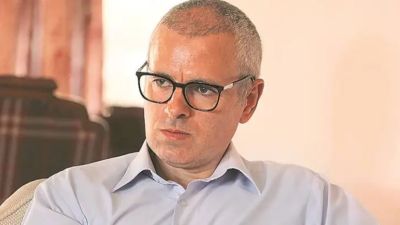A Balasubramanian: ‘Investors should not bother too much about valuation… focus on asset allocation’
In an interview, Balasubramanian, who oversees assets worth nearly Rs 3 lakh crore, says the breadth and width of the market will continue to expand.
 A. Balasubramanian, CEO, Aditya Birla Sun Life AMC Limited.
A. Balasubramanian, CEO, Aditya Birla Sun Life AMC Limited. India is witnessing an all-round momentum in all the sectors and the conviction of staying invested is gradually rising, said A Balasubramanian, Managing Director & Chief Executive Officer, Aditya Birla Sun Life AMC Ltd. In an interview to HITESH VYAS, GEORGE MATHEW and SANDEEP SINGH, Balasubramanian, who oversees assets worth nearly Rs 3 lakh crore, says the breadth and width of the market will continue to expand.
How do you see the growth in the economy?
We will be able to maintain an economic growth of 7-7.5 per cent. If you look at the last four to five years, the key moving parts for the country are the creation of employment, putting India on the higher ladder when compared to global developments, and the third is on the social side, that is, the whole ecosystem is participating in the overall growth momentum.
One of the big changes we have seen in the last five years is that the government has unleashed the power of the public sector such as ISRO (Indian Space Research Organisation), HAL (Hindustan Aeronautics Ltd) and Railways, which has brought efficiency to the country. Fiscal deficit is under control despite all issues because tax collection is the single largest contributor. We are seeing all-round momentum in all the sectors, including real estate.
With the Make in India initiative of the government, many manufacturing companies that were initially sceptical are now coming onboard. More number of companies are looking to avail the benefits of the Production Linked Incentive (PLI) scheme.
What is your view on the current market scenario? Is it euphoria or are there any concerns?
In general, there is no euphoria but confidence in sustaining economic growth for the next 10 to 15 years is high. Therefore, the conviction of staying invested is also gradually rising. I think there is an orderly movement in the market. Suddenly, we are moving from cyclicality nature to a structurally sound platform.
Should investors be worried about high valuation?
I have seen that whenever investors get worried about valuation and try not to make any investment, they invariably end up chasing more. So therefore, investors should not bother too much about valuation, and just focus on asset allocation. Whether they should be overweight on equity? The answer is yes. Whether they should have a balance of equity and debt? The answer is yes, again. The interest rates today are at a reasonably good level, close to 7.5 per cent. But, is 7.5 per cent sufficient to deal with the inflation impact over the long term? The answer is no. Therefore, equity as an asset class will remain a good 10-, to 15-year investment. I think that culture is coming in but the holding period has to go up significantly for domestic investors.
We also recommend our investors that they should invest in the equity market. Valuations will always be a concern. Nobody has been ever right on valuations. Catching both cycles is not that easy for anybody. One school of thought is that if a country is a growth country, what should be given priority – growth or valuation? Most of the well-established global fund managers have always paid attention to the overall growth momentum that could come in the long run. If that is sustainable, then valuation is actually a secondary consideration.
We also need to look at the breadth and width in which the market moves. My view is that the breadth and width of the market will continue to expand.
Lok Sabha elections are coming in 2024. Will a change in the government impact the market?
The market doesn’t like any discontinuation (in the government) and that has been a historical trend. The country as a whole has been a large beneficiary of various activities that have been carried out by the government. This benefit is seen by all sets of populations, including millennials. There’s a change in mindset, which is something that, in my view, would definitely make the political stability in the country continue for a longer time. Reforms initiated in 1991 are not reversed. On the contrary, they have gone to the next level.
How do you see corporate earnings in the second quarter?
It will be good. You will see some sectors seeing impact but most of the companies will have a good growth. I feel 60-65 per cent of the companies will report a good set of quarterly numbers. Their margins will remain intact. We are seeing input costs such as steel and coal prices having come down.
What kind of corporate earnings growth do you see in the medium to long term?
I think 14-16 per cent earning growth on an annualized basis is sustainable over the next decade. The other way to look at earnings is how companies have become efficient.
We have moved away from high debt-oriented companies to more balanced debt-oriented companies. The leverage ratios for companies at present are very low. Historically, most Indian companies were built with high debt but today funding majorly comes in the form of equity or quasi-equity. The other area where we are seeing improvement is the debt-to-EBITDA (earnings before interest, taxes, depreciation, and amortisation) parameter. All the companies have become more disciplined in managing their debt-to-equity ratios.
Photos






- 01
- 02
- 03
- 04
- 05

























